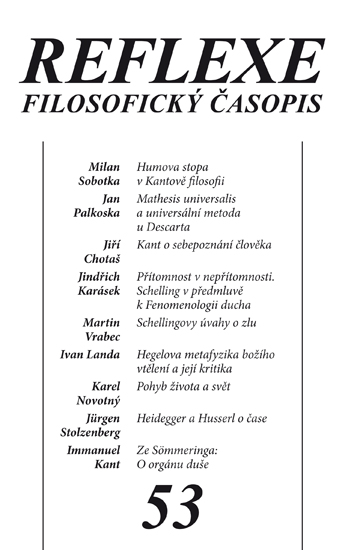Humova stopa v Kantově filosofii
Humean Undertones in Kant’s Philosophy
Author(s): Milan SobotkaSubject(s): Philosophy
Published by: Univerzita Karlova v Praze, Nakladatelství Karolinum
Summary/Abstract: The author deals with the text David Hume on Faith, or Idealism and Realism where Jacobi estimates the signification of Hume for philosophy. Kant agrees with Hume’s claim that the object of knowledge is not to be perceived as thing-in-itself, but rather as appearance. The difference between the consciousness of object and the consciousness of ourselves manifests itself as the difference between the “outer” and the “inner” sense. However, the concept of appearance evolves in Kant’s Critique from the initial to the opposite conception according to which we have to think the objects, we are conscious of as appearances, also as thingsin-themselves, that is, as real. The key role in this development plays the concept of the “transcendental object”.
Journal: Reflexe
- Issue Year: 2018
- Issue No: 53
- Page Range: 5-40
- Page Count: 36
- Language: Czech

